Premium Only Content
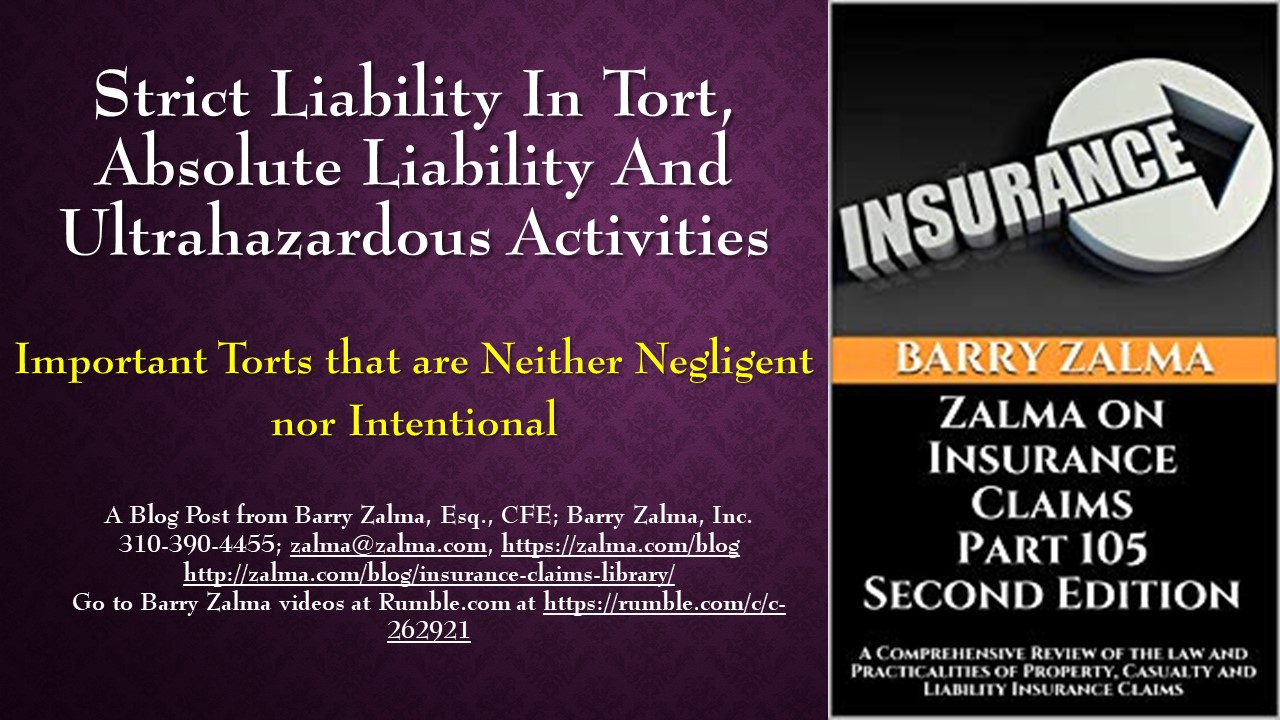
A Video Explaining Strict Liability in Tort, Absolute Liability and Ultrahazardous Activities
Important Torts that are Neither Negligent nor Intentional
Strict product liability is a legal rule that says a seller, distributor or manufacturer of a defective product is liable to a person injured by that product regardless of whether the defendant did everything possible to make sure the defect never happened.
Strict product liability is “a manufacturer’s or seller’s tort liability for any damages or injuries suffered by a buyer, user, or bystander as a result of a defective product. Products liability can be based on a theory of negligence, strict liability, or breach of warranty.” This rule applies even if the seller exercises all possible care in the preparation and sale of the product, and the user or consumer has not bought the product from or entered into any contractual relation with the seller.
Absolute Liability—Liability for Dangerous Animals
A person who possesses or harbors a dangerous animal, whether wild or domestic, is absolutely liable for injuries inflicted by it, where he knows or should know of its dangerous propensities. In the case of wild animals, scienter (evil intent) is presumed. In the case of domestic animals—the type an adjuster will normally see—it is necessary to establish scienter. Knowledge of the dangerous propensities must be proved by the plaintiff to establish liability.
Ultrahazardous Activity: Liability Without Fault
Certain activities create such a serious risk of danger that it is justifiable to place liability for the loss on the person engaging in the activity.
-
 13:02
13:02
Barry Zalma, Inc. on Insurance Law
1 year agoMurder Pays
4391 -
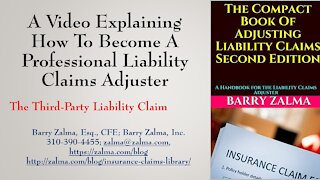 15:50
15:50
Barry Zalma, Inc. on Insurance Law
4 years agoA Video Explaining How To Become a Professional Liability Claims Adjuster
194 -
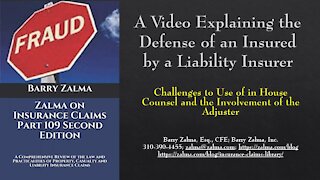 16:05
16:05
Barry Zalma, Inc. on Insurance Law
5 years agoA Video Explaining the Defense of an Insured by a Liability Insurer
43 -
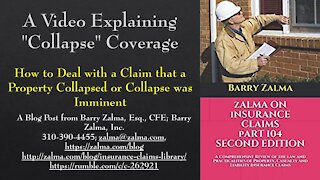 17:01
17:01
Barry Zalma, Inc. on Insurance Law
4 years agoA Video Explaining "Collapse" Coverage
170 -
 16:55
16:55
Barry Zalma, Inc. on Insurance Law
4 years agoA Video Explaining Intentional Acts Exclusions
82 -
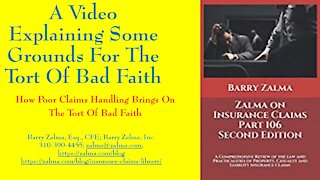 16:44
16:44
Barry Zalma, Inc. on Insurance Law
5 years agoA Video Explaining Some Grounds for the Tort of Bad Faith
138 -
 7:58
7:58
Barry Zalma, Inc. on Insurance Law
4 years agoA Video Explaining Some Advertising Injury Coverage
102 -
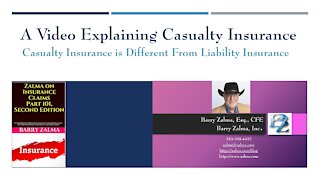 16:42
16:42
Barry Zalma, Inc. on Insurance Law
5 years agoA Video Explaining Casualty Insurance
79 -
 11:53
11:53
Barry Zalma, Inc. on Insurance Law
5 years agoA Video Explaining The Tort of Negligence and Construction Defect Insurance
96 -
 14:15
14:15
Barry Zalma, Inc. on Insurance Law
5 years agoA Video Explaining the Statutes of Repose
143